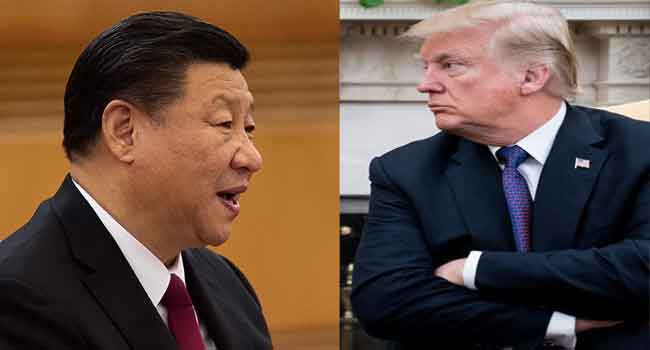The United States has accused China of overloading poor countries with debt. According to the head of the U.S. Overseas Private Investment Corporation (OPIC), China is saddling poor nations with unsustainable debt through large-scale infrastructure projects that are not economically viable.
China has been a target of criticism from Donald Trump, the US President in a trade war that has sent ripples through economies around the world. The United States is attempting to ramp up development finance in the face of China’s global ambitions.
China developed a “Belt and Road” initiative in 203 which aims to build an infrastructure network connecting China by land and sea to Southeast Asia, Central Asia, the Middle East, Europe and Africa.
JEFF BEZOS EDGES OUT BILL GATES – BECOMES RICHEST MAN IN MODERN HISTORY
China has already pledged $126 billion for the plan, which has been praised by its supporters as a source of vital financing for infrastructure-starved partners in the developing world.
But in an interview with Reuters however, OPIC CEO Ray Washburne warned that the Chinese strategy created a debt trap for many poor nations.
“Just look at any project in these countries and they’re overbuilding the size.“We try to have countries realise that they’re indebting themselves to the Chinese.”
Asides from Washburne, the managing director of the International Monetary Fund Christine Lagarde has also warned of the growing indebtedness to China through Chinese infrastructure projects in various parts of third world; Africa especially.
The IMF Director had cautioned China’s Belt and Road partners against considering the financing as “a free lunch”.
Sri Lanka formally handed over commercial activities in its main southern port in the town of Hambantota to a Chinese company in December as part of a plan to convert $6 billion of loans that Sri Lanka owes China into equity.
China’s influence in global trade and finance especially in the third world appears to be a threat to the United States. The formation of BRICS as an alternative to western monetary institutions and their influence on the third world is seen as an alternative by many African countries who seem to prefer the Chinese to the policy intrusion tactics of Bretton Woods countries who impose extreme conditions for financial favours.




 Premier League
Premier League